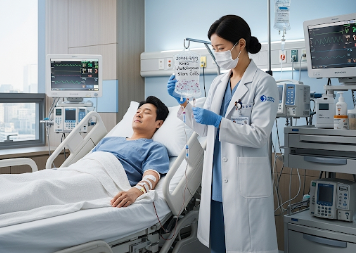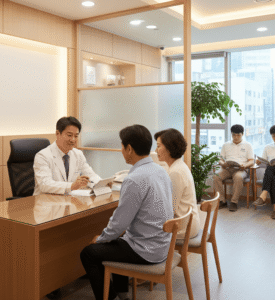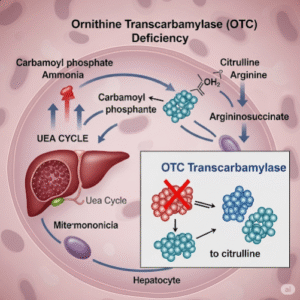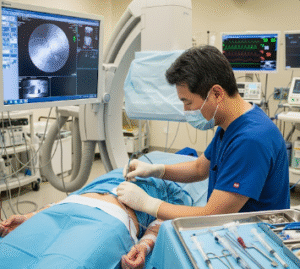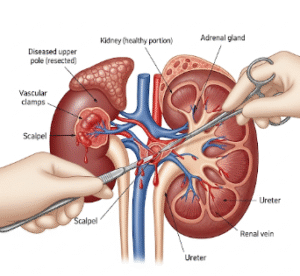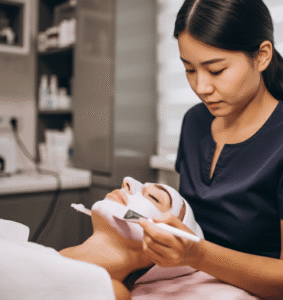Overview
An Autologous Bone Marrow Transplant (ABMT) is a medical procedure where a patient’s own bone marrow or stem cells are collected, stored, and later infused back to treat certain blood disorders, cancers, and immune system conditions. Unlike allogeneic transplants, where donor cells are used, autologous transplants eliminate the risk of graft-versus-host disease and are often safer for selected patients.
In Korea, ABMT is performed in leading hematology and oncology centers using advanced stem cell collection, cryopreservation, and transplantation techniques. The procedure aims to restore healthy bone marrow function after high-dose chemotherapy or radiation therapy, improving outcomes for patients with conditions such as lymphoma, multiple myeloma, and leukemia.
What is Autologous Bone Marrow Transplant?
Autologous bone marrow transplant involves three main stages:
- Collection of stem cells or bone marrow: Cells are harvested from the patient’s blood (peripheral blood stem cells) or bone marrow under anesthesia.
- High-dose chemotherapy (conditioning): Used to destroy diseased marrow and cancer cells while suppressing the immune system.
- Reinfusion of harvested cells: The patient receives their own stored stem cells to regenerate healthy bone marrow and restore blood cell production.
Key points:
- Eliminates risk of immune rejection or graft-versus-host disease
- Commonly used for hematologic malignancies and certain solid tumors
- Requires specialized facilities for collection, storage, and infusion
- Often combined with supportive care to prevent infections and manage complications
What are the benefits?
- ✅ Restores bone marrow function after intensive chemotherapy
- ✅ Uses patient’s own cells, reducing immune complications
- ✅ Can lead to long-term remission in certain cancers like multiple myeloma and lymphoma
- ✅ Shorter hospital stay compared to allogeneic transplant in some cases
- ✅ Advanced Korean centers provide high-tech cryopreservation, supportive care, and monitoring
- ✅ Reduces risk of transplant rejection and severe immunological reactions
Procedure Details
1) How should I prepare for Autologous Bone Marrow Transplant?
- ➤ Pre-transplant evaluation: Blood tests, imaging, cardiac and kidney function assessment
- ➤ Discuss medications, allergies, and pre-existing conditions
- ➤ Ensure nutritional support and infection prevention measures
- ➤ Central venous catheter placement for stem cell collection and infusion
- ➤ Counseling about conditioning chemotherapy, side effects, and recovery
2) What happens during the procedure Autologous Bone Marrow Transplant?
- ✅ Stem cell collection:
- Bone marrow harvested under anesthesia from the pelvic bones
- Alternatively, stem cells collected from peripheral blood after mobilization
- ✅ Stem cells are processed and cryopreserved for later use
- ✅ Conditioning therapy: High-dose chemotherapy (± radiation) administered to destroy diseased marrow
- ✅ Reinfusion: Patient receives their own stored stem cells via intravenous infusion
- ✅ Supportive care: Includes infection prophylaxis, transfusions, and close monitoring
- ✅ Procedure duration: Collection may take several hours, while reinfusion is usually 1–2 hours
3) What happens after Autologous Bone Marrow Transplant?
- ➤ Patient monitored in specialized transplant unit for 2–4 weeks or until blood counts recover
- ➤ Side effects: Fatigue, nausea, low blood counts, infection risk
- ➤ Supportive care includes antibiotics, antifungals, growth factors, and transfusions
- ➤ Gradual immune system recovery over weeks to months
- ➤ Follow-up with hematologist-oncologist to monitor for relapse or complications
Risks / Benefits
Potential Risks:
- ➤ Infections due to immune suppression
- ➤ Low blood counts leading to anemia, bleeding, or bruising
- ➤ Mouth sores, nausea, vomiting, diarrhea
- ➤ Rare organ toxicity (liver, kidneys, heart) from chemotherapy
- ➤ Relapse of the underlying disease is possible
Benefits:
- ✅ Restores bone marrow function safely
- ✅ Reduces immune-related complications compared to donor transplants
- ✅ Effective for achieving remission in multiple myeloma, lymphoma, and some leukemias
- ✅ In Korea, advanced supportive care reduces risks and improves survival outcomes
Recovery and Outlook
- Hospital stay: Typically 2–4 weeks depending on recovery and blood count normalization
- Activity: Gradual resumption of normal activity; avoid exposure to infections until immune system recovers
- Follow-up: Regular blood tests, bone marrow assessments, and imaging to monitor marrow function and detect relapse
- Outcome: Many patients achieve long-term remission, with survival rates improving due to modern supportive care
- Quality of life: Restored marrow function and reduced infection risk contribute to improved overall health
When To Call the Doctor
- ➤ Fever or signs of infection
- ➤ Unusual bleeding or bruising
- ➤ Persistent nausea, vomiting, or diarrhea
- ➤ Severe fatigue or difficulty breathing
- ➤ Any unusual symptoms during recovery or post-transplant follow-up
Best Korea Option / Process
- ✅ Korea offers advanced hematology-oncology centers with expertise in autologous bone marrow transplantation
- ✅ High-tech facilities for stem cell collection, cryopreservation, conditioning therapy, and infusion
- ✅ Experienced transplant teams provide 24/7 monitoring, infection prevention, and supportive care
- ✅ International patients benefit from VIP services, English-speaking staff, and coordinated care
- ✅ High survival and remission rates due to state-of-the-art facilities and skilled multidisciplinary teams

